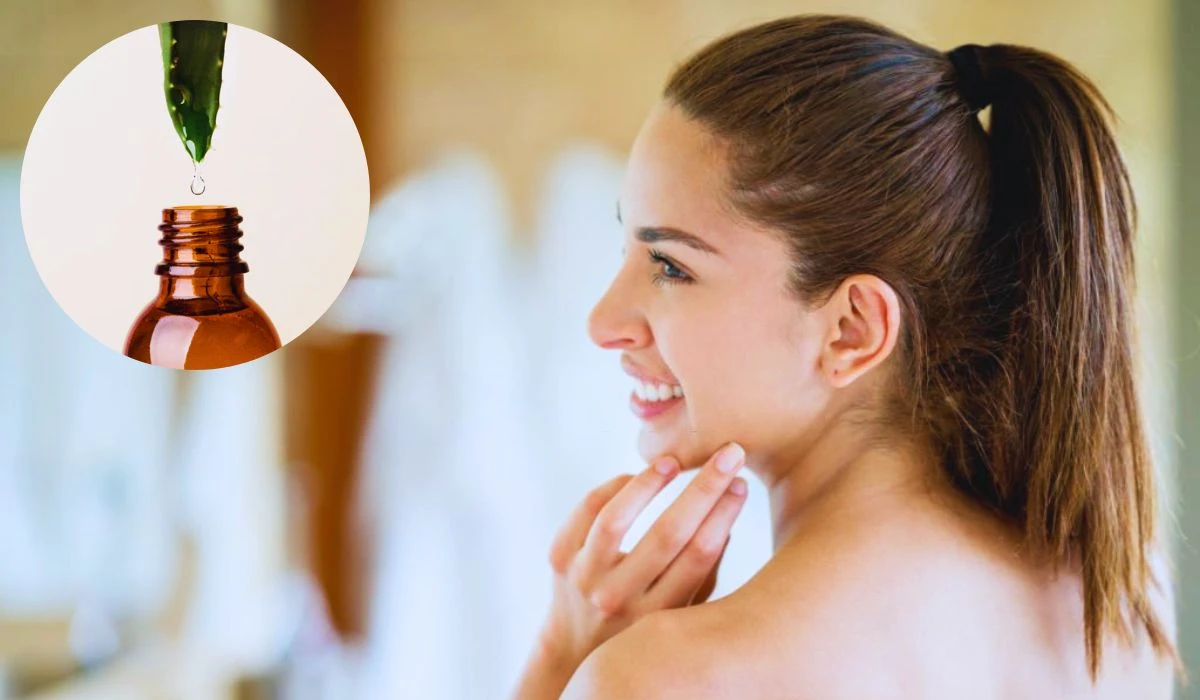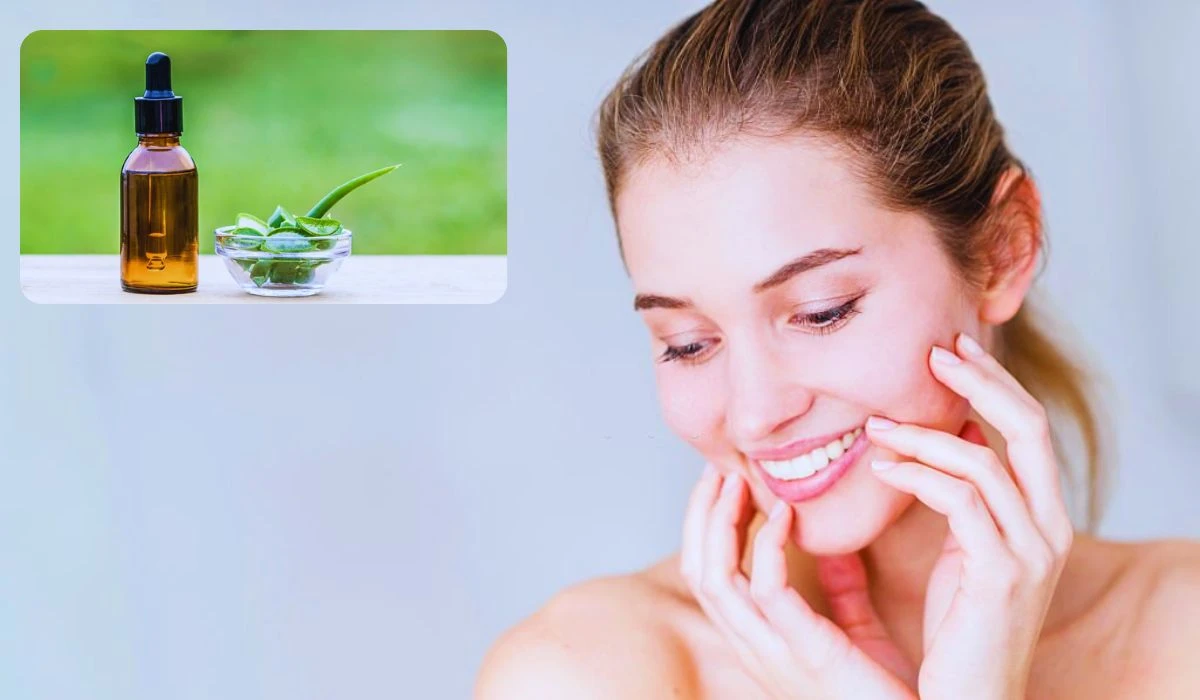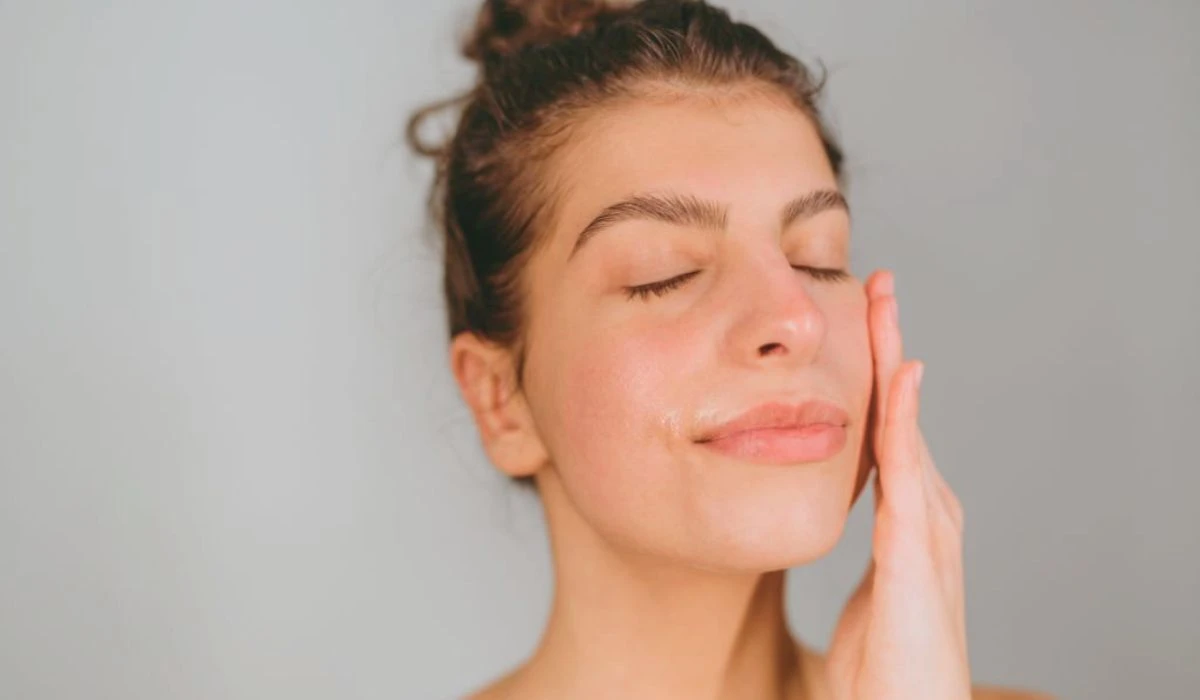Aloe vera gel has been celebrated for oily skin. But does it really work? Let’s investigate!
Aloe vera is known to have soothing effects which can help with various skin conditions. Oily skin can particularly benefit from aloe vera. Its light texture hydrates without adding any greasiness. Also, enzymes in the gel help to control oil production.
So, how to use aloe vera on oily skin?
Importance Of Aloe Vera Gel In Skin Care
Aloe vera gel is well-known for its many advantages. It is obtained from the leaves of an aloe vera plant and has long been used in traditional medicine and skincare. It is renowned for its calming effects and contains vitamins, enzymes, and antioxidants.

Using aloe vera gel is especially great for those with oily skin. It absorbs quickly and does not leave a greasy feel. This makes it a perfect moisturizer for those with oily skin issues.
Aloe vera gel also has anti-inflammatory properties. Compounds like auxins and gibberellins reduce redness and swelling which often come with acne breakouts. Aloe vera gel soothes and heals the skin, leading to an improved complexion.
Benefits Of Aloe Vera Gel For Oily Skin
Aloe vera gel can offer several benefits for individuals with oily skin.
Don’t miss out on the opportunity to improve your oily skin naturally. Incorporating aloe vera gel into your skincare routine can provide numerous benefits, from reducing oiliness to preventing acne breakouts. Take action now and embrace the power of aloe vera gel for healthier, more balanced skin.
? Reduces Excess Oil Production
Let’s discover how aloe vera gel can help reduce too much oil on oily skin. It regulates sebum production – the natural oils our skin produces – and balances sebum levels. Plus, it deeply cleanses pores, removes dirt, impurities, and excess oil; and is a non-comedogenic moisturizer.
? Moisturizes Without Clogging Pores
Moisturizing oily skin can be a challenge. But aloe vera gel is the answer! Here’s how it works:
- Aloe vera gel has a lightweight texture that absorbs easily into the skin, moisturizing without leaving a greasy residue.
- It has natural humectant properties that attract and retain moisture.
- The gel is non-comedogenic, meaning it won’t clog pores or cause acne breakouts.
- It has antimicrobial properties that reduce bacteria on the skin’s surface.
- Plus, the gel calms inflammation and redness, giving skin a healthier look.
? Soothes And Calms Irritated Skin
Aloe vera gel isn’t just trendy, it’s beneficial for oily skin! It soothes and calms, reducing redness and irritation. Plus, the gel is moisturizing without making your skin greasy. It even forms a protective barrier from external pollutants.
What’s more, aloe vera gel has antibacterial properties to help combat acne-causing bacteria. Studies have even shown that it reduces acne lesions in those with oily skin. So, it’s not just a trend, aloe vera gel packs a powerful punch!
How To Choose The Right Aloe Vera Gel For Oily Skin?

When it comes to selecting the most suitable aloe vera gel for oily skin, there are a few factors to consider. Here are five key points to help you make the right choice:
✅ Ingredients: Look for aloe vera gels that contain minimal additional ingredients, as these can potentially aggravate oily skin. Opt for products that have a high percentage of pure aloe vera extract and are free from oils, fragrances, and other potentially irritating substances.
✅ Consistency: A lightweight and non-greasy aloe vera gel is ideal for oily skin. Choose a product that has a gel-like consistency, as it is easily absorbed by the skin without leaving behind excess residue or a heavy feeling.
✅ Anti-inflammatory Properties: Oily skin is often prone to acne and inflammation. Therefore, selecting an aloe vera gel that contains anti-inflammatory properties can be beneficial. Look for products that include ingredients like green tea extract or chamomile, as they can help soothe and calm irritated skin.
✅ Non-comedogenic: To prevent clogged pores and breakouts, it is crucial to choose a non-comedogenic aloe vera gel. Non-comedogenic products are formulated to not block the pores, reducing the risk of acne and blackheads.
✅ Any Additional Benefits: Some aloe vera gels provide additional advantages for oily skin, such as controlling excess oil production or reducing shine. Consider your specific needs and preferences when selecting a product, and look for those that offer these additional benefits.
How To Use Aloe Vera Gel For Oily Skin (Step-By-Step Guide)
Using aloe vera gel for oily skin can be an effective and natural way to control excess oil and achieve a balanced complexion. Here is a step-by-step guide on how to use aloe vera gel for oily skin:
- Cleanse your face: Start by cleansing your face with a mild cleanser to remove any dirt, oil, or impurities. Pat dry with a clean towel.
- Extract fresh aloe vera gel: Cut a mature aloe vera leaf and extract the gel from the inside. You can do this by slicing the leaf lengthwise and scooping out the gel using a spoon.
- Apply the gel: Take a small amount of aloe vera gel on your fingertips and gently massage it onto your face. Pay special attention to areas prone to excess oil, such as the forehead, nose, and chin.
- Let it absorb: Allow the aloe vera gel to absorb into your skin for about 15 to 20 minutes. During this time, the gel will penetrate the pores and help control the production of oil.
- Rinse off or leave on: Some people prefer to rinse off the aloe vera gel after it has been absorbed, while others prefer to leave it on as a moisturizer. Choose whichever option works best for you.
- Repeat regularly: For optimal results, use aloe vera gel for oily skin at least twice a day. Consistency is key to maintaining balanced and healthy skin.

